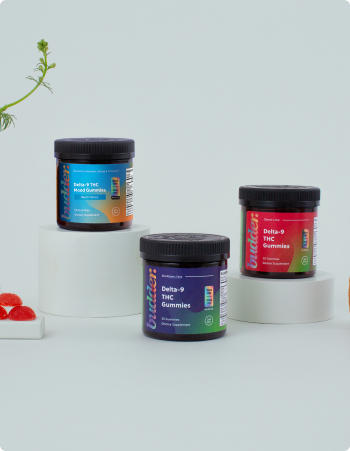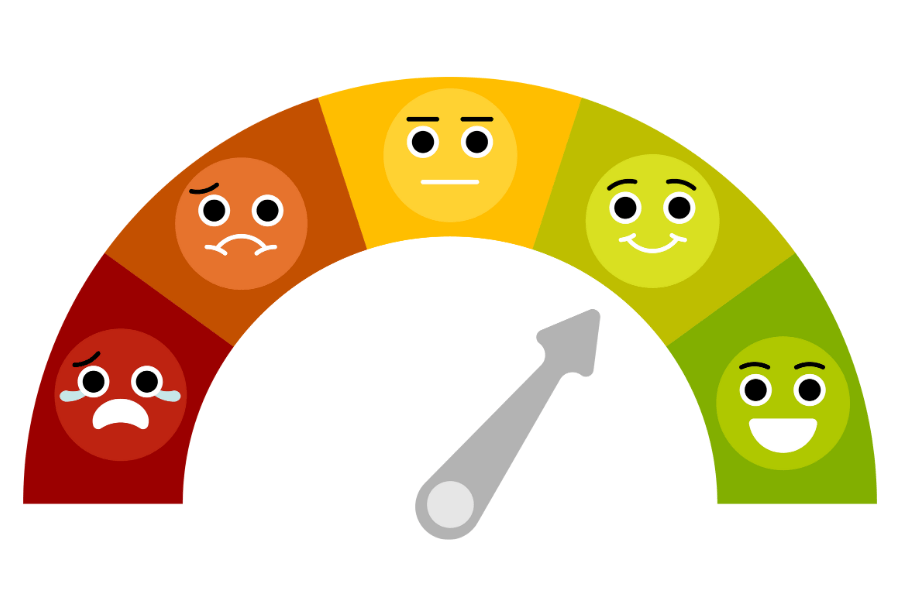Most of us think we'll have to actively do something to achieve wellness. Things like …
- Sticking to a regular exercise routine
- Swapping out calorie- and trans-fat-laden ultra-processed foods with nutritious, fresh whole foods
- Improving sleep hygiene to get at least 7 hours of quality shut-eye every night
But what if you could attain wellness simply by thinking about it? Feeling skeptical?
Then, chances are, you're unfamiliar with award-winning social psychologist Ellen J. Langer's life's work. Don't worry, though. That's about to change. Discover the immense power of your mind and how to leverage it for optimal wellness in this article.
What can your mind do for you?
First, to get everyone up to speed, here are two things to know about Dr. Langer:
- She’s the first female tenured professor of psychology at Harvard
- She has been researching the mind-body connection (and how mindfulness can hack that system for massive wellness benefits) for 40 years—earning her the well-deserved moniker "The Mother of Mindfulness"
“Mind-body connection”—what’s that, you ask? It's simply the idea that your mind can affect your body just as much as your body can affect your mind.
And as for the specific effects your mind can exert on the body, let's have Dr. Langer's studies do the talking (note that the following is a non-exhaustive list of her published research; otherwise, this article would probably go on for…quite a while).
Makes you feel younger
In 1979, Dr. Langer and her colleagues recruited a group of men in their 70s for a 5-day retreat at a converted monastery in New Hampshire and randomly assigned them to 2 groups:
- Group 1: Instructed to live as if it were 1959 (the researchers provided physical props and elements, including magazines and TV programs, that were popular in 1959 to prime the effect)
- Group 2: Instructed to reminisce about life in 1959, i.e., to use the past tense in discussion
Guess what Dr. Langer and her colleagues found after 5 days?
While both groups experienced improvements over baseline on several age-related measures, those in Group 1 outperformed in vision, joint flexibility, manual dexterity, IQ, gait, posture, and decreased symptoms of arthritis.
Helps you lose weight (without eating less or moving more)
In 2007, Dr. Langer conducted another study published in Psychological Science involving 84 female hotel housekeepers.
Most housekeepers reported not getting much exercise in a typical week.
Then, 44 were told that their daily work responsibilities (cleaning rooms) were fairly serious exercise—providing enough (if not more) activity to meet the recommendation of 30 minutes of physical activity daily.
A month later, relative to the control group, Dr. Langer found that those 44 women had lost weight and improved on other measures, like body mass index and hip-to-waist ratio.
The astonishing thing was that all other factors were held constant; the 44 women did not work any harder or more than those in the control group. The only difference was the change in mindset—that their work was exercise.
Lower blood glucose levels
Can you think your way to more stable blood glucose levels?
Dr. Langer’s 2016 study published in Proceedings of The National Academy of Sciences of the United States of America says yes.
The researchers tracked the blood glucose levels of 46 participants with diabetes while they completed simple tasks over a “90-minute” window.
Um, why the quotation marks?
Well, it’s because the researchers manipulated the participants’ time perception by having them refer to clocks that were either accurate or altered to run fast or slow.
And what were the findings?
The participants’ blood glucose levels changed according to how much time they believed had passed instead of how much time had actually passed!
Enhance cognitive performance (even when sleep-deprived)
A final paper to cap it all off: this 2020 study published in the Journal of Psychosomatic Research.
Dr. Langer and colleagues recruited 16 participants who received an 8-hour sleep opportunity, followed by a 5-hour one, on 2 consecutive nights. Upon waking, participants were randomly informed that they received either an 8-hour or 5-hour sleep opportunity.
Interestingly, the researchers found that the participants had significantly quicker reaction time when they thought they slept for 8 hours, regardless of the actual duration.
A timely disclaimer at this point
As you can tell from Dr. Langer's work, your mind can be an incredibly powerful ally in your journey to wellness—it could improve your cognitive performance, make you feel younger, achieve a healthier weight, plus a flatter glucose curve.
But please don’t take it as a free pass to adopt unhealthy habits in other aspects of your life.
In other words, think of what your mind could do as a supplement to, not a replacement of, the following:
- A healthy diet
- Exercising regularly
- Keeping a healthy body weight
- Avoiding alcohol and smoking
Learning to leverage your mind
- Now that we’ve got that out of the way, how can you “unlock” the power of your mind?
It all comes down to mindfulness.
Because mindfulness can be a frustratingly abstract concept—and many people find the advice "just stay present" about as helpful as a single drop of water in putting out raging wildfires—Dr. Langer offers two actionable tips:
- Actively notice new things: This applies even to the things you thought you knew. For example, let's say you follow the same route to work every day. While you might think you've got the sights and sounds memorized, everything's constantly changing—bring an open, curious mind the next time you travel to the office, and what you (actually) see might just surprise you and help you learn something new.
- Do regular check-ins with yourself throughout the day: A great way to keep in tune with yourself is to rate how you feel at the moment, e.g., on a scale of 1 to 10, periodically throughout the day. So, if you rate “2” in the morning, ask yourself why. Is it because you ran out of coffee? Have you argued with your partner? Repeat every few hours; the search for "why" at every point of your day makes practicing mindfulness almost effortless.
Now, go be mindful and think your way to optimal wellness.




























































Join in on the Conversation
Your email address will not be published. Once your comment is approved, it will be published.